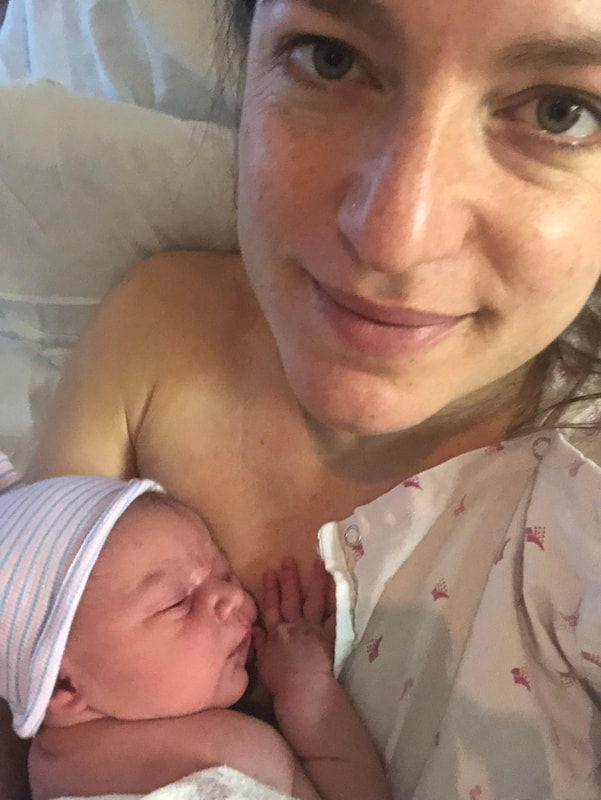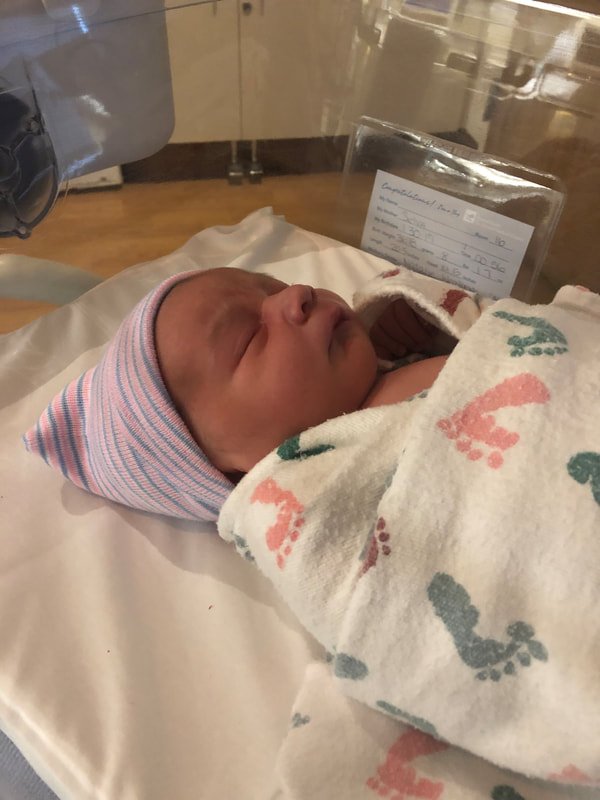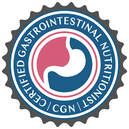|
My Labor Story It's been a year since Toren was born and I was reborn as a mother. I remember the days as if they were a vivid dream. Some moments remain crystal clear, while others seem like they belong to someone else. But I know, it was all me 100% of the time. Fortunately, I had a very easy pregnancy. During my first trimester I had some light spotting between weeks 6-8, and then afternoon fatigue around that same time. I also remember that my appetite was suppressed and I did not enjoy cooking. Luckily, around week 12, all that went away and my passion for cooking and eating returned. As the pregnancy progressed, everything else went smooth. I gained ~25lbs, which honestly looked like a lot more on my little frame. I am still amazed that I was able to walk let alone balance with all that weight in front of me. Although my pregnancy was easy, my labor and delivery were tough. In retrospect, I think I would do it all over again. Thirty-three hours of insanity for nine months of ease seems like a fair enough trade. In comparison to some moms I know, my labor story would be considered easy. But for me and many others, it would be considered a rough ride. It all started after a wonderful blue bird day up at Mt. Baker. We decided to rent a cabin in Glacier and go snowshoeing for our last hurrah. It was a week before my due date and we knew it was "risky". Everyone thought we were crazy, but we didn't care. After a glorious day on the mountain concluding with a nice 20 minute hot tub soak, it began. I became Warrior Selva, excited, determined, and courageous. Little did I know that 24 hours later I would be scared for my life. Despite a supportive midwife, doula, and husband, I had to transfer to the hospital. Toren unfortunately was sunny side up and at an angle, causing me to involuntary bear down even though my body was not ready yet. After hours of involuntary pushing and in-between contraction shakes that caused my whole body to tremble rigorously, I was left feeling exhausted and defeated. I needed relief, I needed a break, and I needed to calm down. I believe my high stress and fear caused my body to start developing a syndrome called HELLP, a life threatening pregnancy complication, where the mortality rate has been reported to be as high as 30%. The hospital staff also informed me that there was a good chance that Toren may need to be born via C-Section. Luckily, upon arrival at the hospital, first the fentanyl and secondly the epidural, both saved my life. I was able to relax after four hours. I no longer had the shakes, I was able to "nap", and with the help of Pitocin, Toren was able to turn into the correct position. After seven hours of rotating from side to side with a peanut pillow between my legs, the nurse midwife told me I was ready to push. After an hour and a half, Toren entered our world without interventions. I was beyond relieved that it was over. We both survived and we were healthy. I also clearly remember hearing the nurse midwife comment on my placenta, "this is the largest, most robust placenta I have seen". And that made me proud :) Thereafter, the hospital staff was mostly concerned with my recovery. Due to the HELLP syndrome my liver enzymes had shot up and my RBC and platelets dropped. They even wanted to give me blood. But luckily I recovered quickly and since I didn't have any symptoms (such as dizziness or changes in vision), they let us go home two days later. However, due to the many hours of involuntary pushing, I was very sore and swollen. My many nurses at the hospital often commented, "Oh, honey!" every time they examined me. I also had a vaginal wall tear that burned so bad every time I had to urinate. From there on out, recovery was a long road. Although birth happens every day, a thousand times over, it is not a walk in the park. Many people unfortunately think women should be able to bounce back in no time. Three weeks leave should be enough time right? NO! Six weeks is not enough either! I often hear, "oh maternity leave must be so nice since you aren't working for three months. It must feel like vacation." Umm, no, it is definitely not vacation. Birth is very hard, becoming a mother is a huge transition, and some women may have additional complications with breastfeeding, a colicky baby, or postpartum depression. The Fourth Trimester should be a time where the community supports the new mom and baby. It should not be a period of time when the mother is given additional guilt. With that said, I want to share some of my professional wisdoms to help support new moms in my community. To empower them with information that will hopefully ease the transition into motherhood. When I became a new mom I realized how little quality nutrition information was given from health care providers. At first I thought they didn't provide me with information because I was a dietitian. But as I asked around, none of my friends received any specific dietary recommendations besides "eat a healthy diet and take a multivitamin". First of all, what is a healthy diet postpartum? And what kind of multivitamin should be considered? Many people may think that a healthy diet means eating salads and smoothies every day for breakfast, lunch, and dinner. But unfortunately, this practice could leave the mom and baby nutrient deficient. Read on for my general recommendations during the Fourth Trimester to make sure you and your baby are getting the nutrients you need for health and recovery as well as breast milk quality. The Fourth Trimester Commonly called the Fourth Trimester, the postpartum period is a very critical time for both the new baby and new mom. Many people lose sight after delivery how important proper nutrition is after the baby is born because so much attention is placed on nutrition during pregnancy. But did you know that your nutrition needs actually increase after delivery? During the third trimester calorie needs are about an additional 450kcal per day while exclusive breastfeeding during the first six months requires on average 675kcal per day. Plus, that doesn't take into the account of the extra calories needed to recover from birth and the insane amounts of energy required during birth. This means that some moms require even MORE than that, especially in the immediate weeks following delivery! Thereafter, when baby starts to consume complimentary foods, energy cost of lactation is between 450-500kcal per day. However, we cannot just focus solely on calorie needs but also the increased needs of certain nutrients that if not provided in adequate amounts via diet or supplementation can reduce the proper growth and development of baby. Furthermore, we cannot forget about mom! After delivery mom also requires special attention to certain foods for proper healing and recovery. And not to mention a lot of rest! Many traditional cultures encourage moms to stay home and heal for on average 40 days, with the first week considered a very fragile time with very limited movement and activity. Check out this book for inspiration. In today’s day and age we often don't give enough credit and attention to the needs of mom during the Fourth Trimester. The “Supermom” “Do it all” mentality is unrealistic and can also be detrimental to both mom and baby. Highlighted Nutrients of Concern For Mom & Baby Even if a mother is undernourished calories, protein, folate, and most trace minerals are sufficient in the breast milk to ensure survival of the infant by relying on the mother’s stores. However, for other nutrients such as B vitamins (besides folate), fat soluble vitamins A, D, E, and K, choline, fatty acids (such as DHA), and certain trace minerals iodine and selenium, the mother’s diet does affect the amounts found in the breast milk. Compared with pregnancy, lactation requires not only more calories but also more nutrients. Furthermore, radical dietary changes will drastically impact the quality of breast milk. Low calorie diets less than 1800kcal per day and drastic dietary changes, such as very low carbohydrate or low fat diets, can impact breastmilk production. Therefore, it is not recommended to restrict carbohydrates, fats, or proteins while breastfeeding without possibly reducing breastmilk production and quality. Macronutrients It is essential to honor your hunger cues during the postpartum period. If you have been following a low to moderate carbohydrate diet (~90-150g per day) throughout pregnancy to manage gestational diabetes or weight gain, it is fine to continue this during lactation. However, if you start to restrict carbohydrates drastically after delivery in hopes to lose weight then this may negatively impact breastmilk production as well as adrenal and thyroid function. Carbohydrate needs depend on a variety of factors. In my practice I have found a range of 30-40% of calories (or about 170-230g of complex carbs based on a 2300kcal diet) to work for most lactating women. However, it is best to work with your dietitian to find a carbohydrate range that will best support you through the postpartum period. Furthermore, pairing these complex carbohydrates with quality fats and proteins helps stabilize blood sugars, providing more stable energy, and reducing added stress on the adrenal glands. Aiming for around 100g of protein per day, divided between meals and snacks, is a good baseline for most nursing moms. Furthermore, protein rich foods are often excellent sources of the highlighted nutrients below. Quality fats provide the remaining energy, omega-3 fatty acids, and are essential for the absorption of fat soluble vitamins. B12 Women who consume vegan or vegetarian diets are at a high risk of developing vitamin B12 deficient milk. Inadequate vitamin B12 content in the mother’s diet or lack of supplementation can cause the infants brain to shrink and present itself as irritability, failure to thrive, and anorexia with severe growth stunting. Tip: Add in B12 rich foods daily via clams, liver, eggs, seafood, and animal meats. If vegan, supplementing with 1000mcg of cyanocobalamin bi-weekly (or this product once weekly) can help maintain adequate vitamin B12 stores. Recommendations change if you have been diagnosed with a deficiency. Choline Choline needs increase dramatically during lactation and is essential for proper brain development along with folate. Adequate choline intake increases memory capacity and prevents age-related memory and attention deficit. The estimated daily need is 550mg per day for breastfeeding moms. Foods rich in choline include eggs (150mg per egg), oysters (110mg per 3oz), and organ meats (liver – 360mg/3oz and kidney 440mg/3oz). Many traditional cultures encourage plenty of choline rich foods in the postpartum period with some eating 8-10 eggs per day! Unfortunately, many young women are not getting enough choline through diet alone. Plus, many multivitamins contain only very little choline or none at all. Once again vegans or vegetarians are most at risk for inadequate choline intake. Tip: Recommend eating choline rich foods daily and ensure additional choline content in multivitamin. Additional supplementation for mother’s eating a vegan or vegetarian diet may be warranted. Iodine Worldwide many people are at risk for iodine deficiency due to low intake of seafood and seaweed, iodine deficient soil, increased exposure to chlorine, and limited use of iodized salt. Iodine plays an essential role in thyroid health and metabolism. In infants the iodine pool turns over rapidly and therefore requires a consistent, steady source of iodine via the maternal diet to make sure baby gets enough. Tip: Add dulse flakes when cooking savory meals, add a kelp frond to soups, and enjoy quality seafood, eggs, and dairy often. Also, check your multivitamin to see if there is added iodine. Fat Soluble Vitamins A & D Both vitamin A and vitamin D are crucial for infant growth, immune system development, and prevention of infection. Vitamin A needs increase significantly during lactation. However, just eating carrots or sweet potatoes will not provide enough of the active pre-formed vitamin A (retinol) that is required. You will also want to be careful with supplements that provide only beta-carotene for vitamin A supplementation. Research found that women who supplemented with only beta-carotene (without the pre-formed vitamin A) had vitamin A deficient breast milk 40% of the time vs. 4% in women whose multivitamin contain both beta-carotene and retinol. Furthermore, you need fat in your diet in order to absorb fat soluble vitamins. If fat is restricted due to weight loss goals, the content of fat soluble vitamins (such as vitamin A, E, K, and D) in breastmilk will be lower. Tip: Animal fats and organ meats are a great source of pre-formed vitamin A, including egg yolks and grass-fed butter, as well as liver. Breast milk has long been noted to be vitamin D deficient and exclusively breast fed infants are encouraged to supplement with additional 400IU of vitamin D/day. Exposure to sunlight via mother’s skin during the months of March through September can provide a good source of vitamin D. Additional vitamin D3 supplementation of 1000-2000 IU/day is also recommended to maintain blood serum levels of 40-60ng/mL. Alternatively, recent research has found that mothers can increase their supplementation dose to 6400IU per day to ensure adequate vitamin D3 in breastmilk for the infant. Therefore, eliminating the need for additional baby vitamin D3 drops. Tip: recommend all breast feeding mothers check their vitamin D3 status and adjust supplementation per health care provider recommendations. DHA & Fatty Acids The maternal diet directly effects the fatty acid content of breast milk. Omega-3 fatty acids have been found to be especially important for infant brain development. Infants whose mother’s had high DHA levels have improved neural and visual development. Dietary choices definitely make a difference. Women who eat on average of 4.5oz of seafood/day have DHA concentrations of about 2.8% whereas vegan mothers only have a DHA concentration of about 0.05%. Furthermore, DHA levels are only adequate in breastmilk when mothers diet contains omega-3 rich foods or supplements consistently. Tip: Consume low mercury seafood like salmon and sardines, grass-fed beef and eggs, and continue to take a quality DHA fish or algae oil supplement while breast feeding. Flaxseed oil supplementation does not increase DHA in breast milk. Highlighted Nutrients of Concern For Healing & Recovery Mom's go through the wringer. Whether it was a long labor, vaginal tearing, or a c-section, healing needs are high postpartum. Tissues that have been stretched, torn, or cut require additional protein for regeneration and repair. The amino acids proline and glycine are especially important because your body uses these to make collagen for the regeneration of connective tissue and skin. Foods rich in collagen like bone broth, slow cooked meats, chicken skin, fish skin, or pork rinds will provide these amino acids. Check out my recipe for a collagen rich bone broth here. Tip: Aim for 12-15g of collagen protein per day. You can also use collagen peptide powder supplements for ease. Furthermore, iron rich foods like organ meats, grass-fed beef, and oysters can be especially helpful to replace iron lost during birth and the days following. My Blood Building Liver Pate is a family hit and an excellent way to provide nutrients for RBC production, including iron, folate, B12. Plus, did you know that vitamin A plays an essential role in iron metabolism? Research has found that vitamin A supplementation along with iron supplementation improves anemia better than iron supplementation alone. Liver, once again, is an excellent source of vitamin A. Finally, plenty of fluids are essential for mama and baby during the postpartum period. During the first two weeks when hormones levels are fluctuating and leaving you soaked upon waking, fluid and electrolyte needs are very high. Therefore, it is recommended to aim 3-4L per day, including savory broths, warm beverages, and coconut water to help replace electrolytes. Thereafter, aiming for 3L per day while breastfeeding is adequate. In Conclusion If you have made it this far, I applaud you! As you can see warming and hearty meals rich in animal proteins, offal, and quality fats, is an essential part of a quality postpartum diet. Don't get me wrong, vegetables and fruits are important too, but they should not be the only focus. Raw vegetables can be difficult to digest, and during the early period of recovery, cooked vegetables are easier on the digestive tract allowing for enhanced absorption of nutrients. Gentle starches such as cooked tubers, squash, and well-cooked grains can help provide sustained energy when paired with quality proteins and fats. Raw fruit when paired with a fat or protein can be an excellent snack. For example, diced strawberries topped with organic whipped cream, a diced kiwi served with organic whole milk yogurt, or a pitted medjool date stuffed with almond butter. Getting enough calories is important as well. If you are hungry, please eat! Even if it is in the middle of the night between feeds. Avoid skipping meals or going too long between meals. Simply honor your hunger. Finally, it can be helpful to work with a skilled dietitian to help guide you through the postpartum period. Additional labs and supplements can be helpful in varying cases, especially if energy/vitality is low, anxiety/depression persists, or nutrient deficiencies are noted by your health care provider. If you would like more in depth nutrition information to support the postpartum period and breast milk quality, then please join me at the Bellingham Center for Healthy Motherhood on select dates. For more information regarding this class click here. References:
1) http://www.fao.org/3/y5686e0b.htm 2) Women's Health Nutrition Academy. Postpartum Recovery & Nutrient Repletion presented by Lily Nichols. 3) https://www.ncbi.nlm.nih.gov/pmc/articles/PMC6008960/pdf/nmy022.pdf 4) https://academic.oup.com/ajcn/article/110/2/391/5509914 5) Women's Health Nutrition Academy. Nutrition for Breastfeeding presented by Lily Nichols. 6)https://www.nestlenutrition-institute.org/news/article/2017/07/07/fat-content-in-breast-milk-and-maternal-diet-are-highly-correlated 7) https://www.mdpi.com/2072-6643/11/9/2025/htm 8) https://www.ncbi.nlm.nih.gov/pmc/articles/PMC6683022/ 9) https://www.ncbi.nlm.nih.gov/pubmed/26025328 10) https://pediatrics.aappublications.org/content/136/4/625 11) https://lpi.oregonstate.edu/mic/minerals/iron
2 Comments
4/16/2020 11:05:35 pm
This short fiction story is what I want to keep on playing. I know tons of people who would love to read all about this story. I think that the premise of it is quite intriguing, and you can do a lot with it. If you want, I can go and help you think about new content to add to it. I have been a content writer for about a year now, and I want to gain more experiences, so it is a win-win.
Reply
Leave a Reply. |
AuthorLike to read? Then get your evidence based nutrition information here! All posts written by Selva Wohlgemuth, MS, RDN Functional Nutritionist & Clinical Dietitian Archives
August 2023
Categories
All
|







 RSS Feed
RSS Feed


